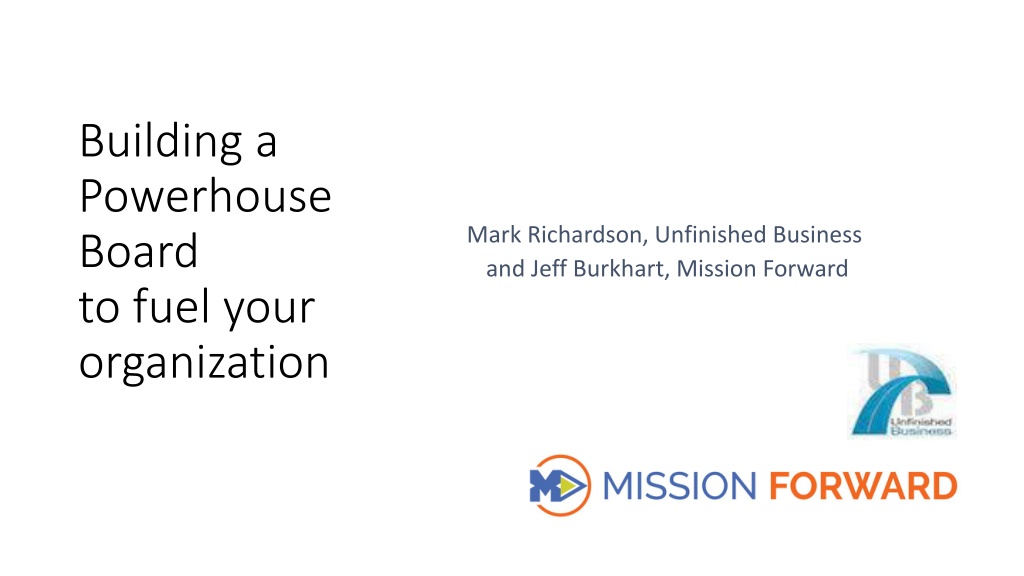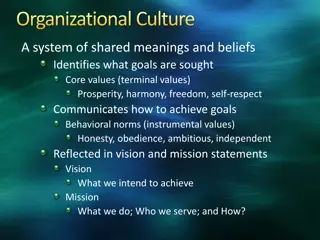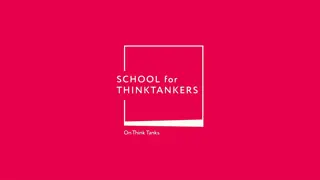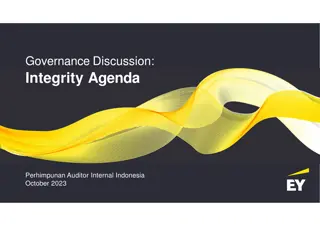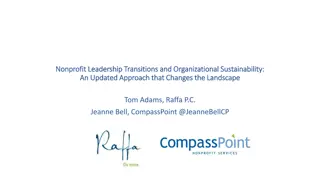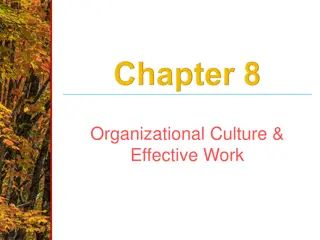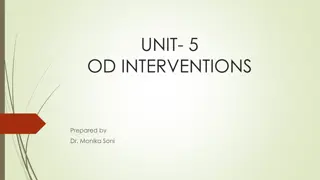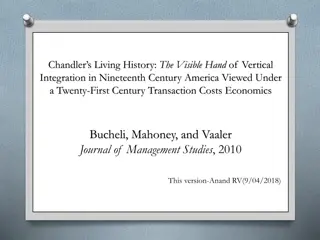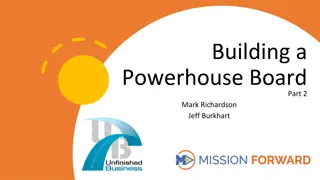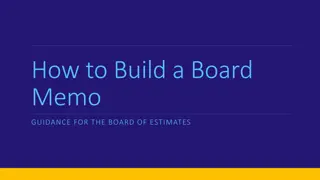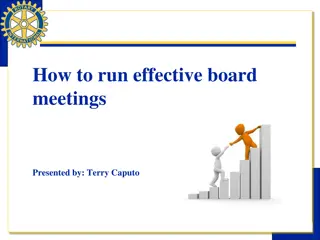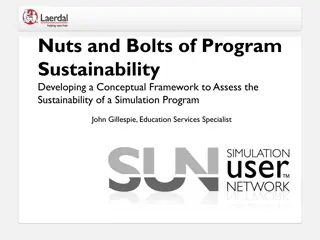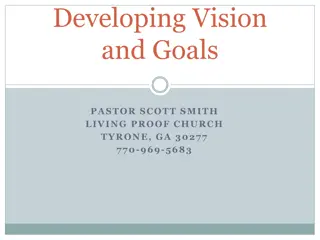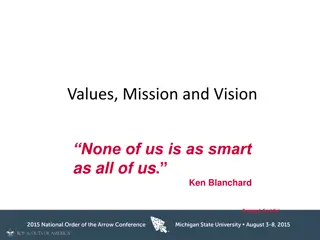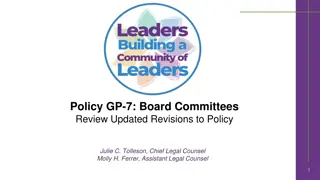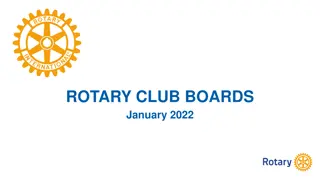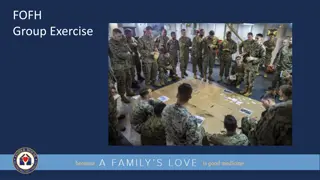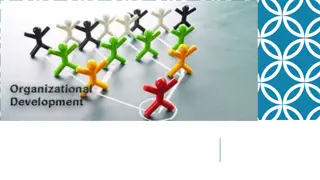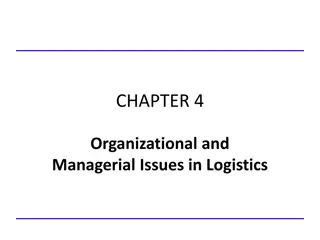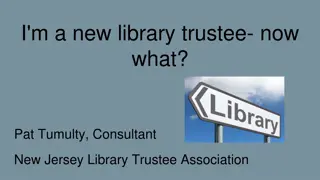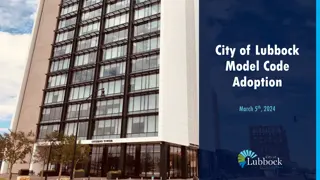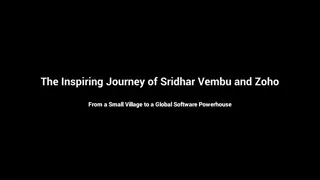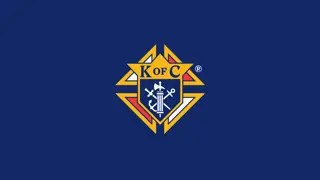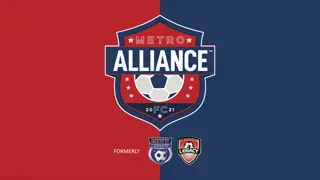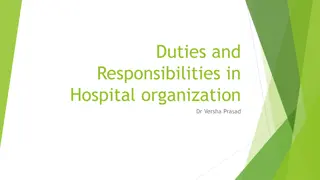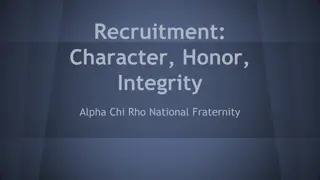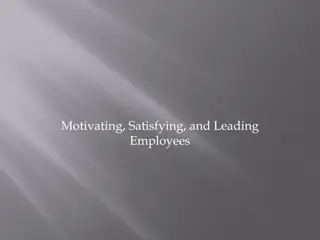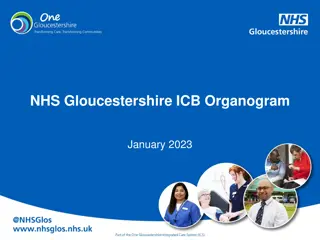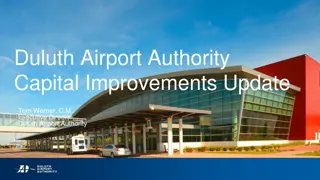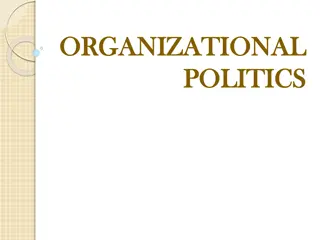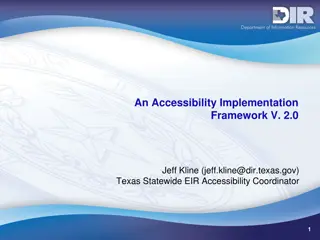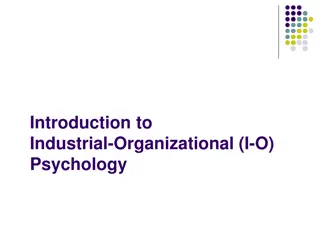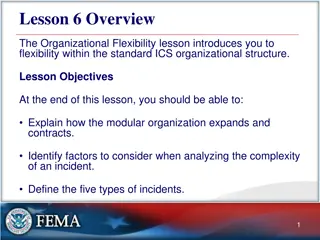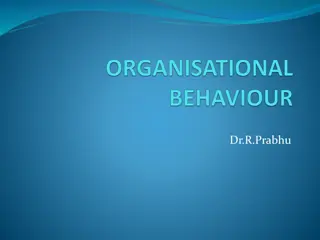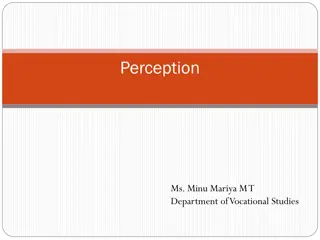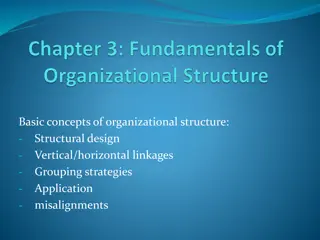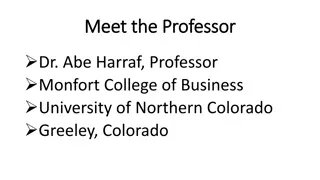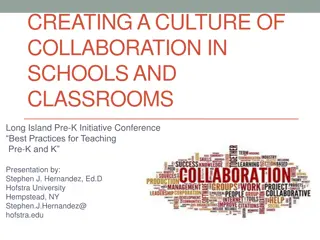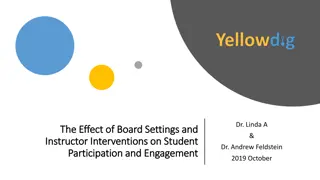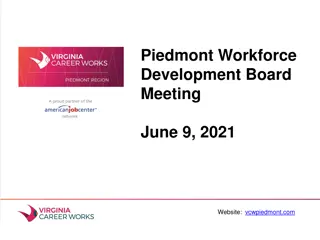Building a Powerhouse Board: Strategies for Organizational Success
Develop an effective board for your organization by focusing on board culture, mission clarity, priorities, and building strong relationships. Establish mutual agreements, create board goals, and maintain regular check-in meetings to ensure alignment and progress towards your organizational mission.
Download Presentation

Please find below an Image/Link to download the presentation.
The content on the website is provided AS IS for your information and personal use only. It may not be sold, licensed, or shared on other websites without obtaining consent from the author. Download presentation by click this link. If you encounter any issues during the download, it is possible that the publisher has removed the file from their server.
E N D
Presentation Transcript
Building a Powerhouse Board to fuel your organization Mark Richardson, Unfinished Business and Jeff Burkhart, Mission Forward UNFINISHED BUSINESS: Where Talent Opportunity Cross Paths
Session overview 7 Steps to an effective board Board Culture Priorities and Critical Issues Building a board workplan
1. Discuss board culture 2. Clear understanding of mission 3. Clarify priorities and critical issues, and individual interests in meeting them 4. Develop mutual agreement about board responsibilities and expectations 5. Create and sign a commitment form outlining responsibilities 6. Develop board goals and committees based on these responsibilities 7. Create and stick to a regular schedule of check-in meetings on the goals 7 Step Process of Building a More Effective Board
Board culture is a pattern of shared beliefs and assumptions. They underlie the goals, work habits, decision-making, conflict resolution, management, and success of an organization. Transparency about board culture helps you focus on strategy. By focusing on cultivating strong relationships and trust, you can get more done. Culture
Authentic relationships and trust can be developed when you are purposeful about being open. You re in a far better position to talk about things that are challenging or threatening once you have strong relationships. Relationships! - Board member
Were always teeing up discussions on strategy and asking, What do you think? Because board members bring many different perspectives based on their backgrounds and experience, we want the board informing our strategies. - Board member Relationships!
You wont get to the mission if you don t build relationships. I believe that people have to understand it s not about people following you; it s about going far together as co-leaders. - Board member Relationships!
Example: The board and senior leaders at XYZ Organization are committed to understanding issues by hearing the feedback directly from people they support. Once every quarter, they invite three people they support to come and tell their stories at meetings. Culture Questions to ask at your board meeting: What are our board s shared beliefs? What actions based on these beliefs will support our success?
A positive shift in culture occurs with: Persistent focus on the mission of the organization Identification of the strategic actions that will support the mission Consistent collaboration to support actions Clear roles for members of the collaboration Regular reporting on progress to the board Focus of future needs Positive culture shift
What are the most important areas of focus for the organization? Find a conversation partner Which of these areas do you want the board to help improve?
Decision-making that always focuses on the mission, vision, and values Consistent leadership with defined roles/processes Commitment to forge a strong partnership between director and board that relies on transparency in communication, integrity, and respect An agenda that focuses on the big-picture strategic thinking and steers away from micromanagement An ability to realistically determine the financial resources you need to meet priorities and fulfill your mission Leadership s role in board development
Board work plans Committee charters and work plans Board development plans Commit to support the board s work Follow-through on plans in regular meetings Ask board to self-evaluate annually Develop your board
What are the big questions you need to address in the next year? Questions to guide development of your board work plan What tangible and realistic actions and input is reasonable to expect from the board on these questions? What skills and resources do they have currently that will help you make progress on the questions? What skills and resources does the board need to build in the next year?
Board recruitment curating connectors and doers attracting new members promoting the board succession planning Future session on Feb 22 Onboarding Training, expectations, engagement Roles and responsibilities Board handbook Peer support
Your questions
Session 2 Nonprofit Fundamentals Workshop Series Thursday, February 22 at 3:00-5:00 pm UW South Madison Partnership Space Next session 2238 South Park Street Madison, WI 53713 Room 104 FREE!
